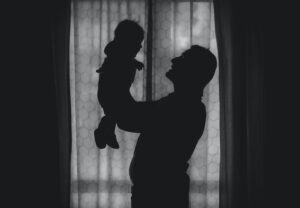Feature: What has 6-year-old Arthur Labinjo-Hughes taught us about child services?
When a video emerged of the killers of six-year-old Arthur Labinjo-Hughes ostentatiously enjoying ice cream cones in front of him while he starved, it brought to mind a detail of the case almost 50 years ago that first put child abuse high on the public agenda and changed social work forever.
It was in 1973 that Maria Colwell was beaten to death by her stepfather, William Kepple. He had then wheeled her battered body to hospital in Brighton in a pram he used for carrying coal. Her stomach was subsequently found to be empty.
Just like Arthur, Maria had lived in a household with half-siblings who had been favoured while she was deprived and abused. It emerged at his trial that Kepple had bought his own children ice cream and forced her to watch as they ate it.
How far have we come in half a century of focused efforts to protect children from abuse of this most shocking kind?
Data is elusive and slippery, but despite general agreement that the picture has improved sharply since the early 1970s, the NSPCC says it remains probable that at least one child is killed each week in the UK through ‘assault, neglect or undetermined intent.’

Little Arthur’s case, which has touched such a nerve in the nation that it has prompted tributes by football supporters at matches across the country, has inevitably raised questions over how social workers and other state agents can have failed to intervene to prevent his death at the hands of his stepmother and father.
At their trial, it emerged that Emma Tustin, who was found guilty of murder, and Thomas Hughes, convicted of manslaughter, had waged a ‘campaign of appalling cruelty’ on the boy at their home in Solihull. As well as being starved of proper food, he had been force-fed salt and beaten routinely, ultimately suffering an unsurvivable brain injury. Much of this had been captured by the couple’s own video recordings.
Social workers had visited the family home after Arthur’s paternal grandmother reported bruises on his back, but they were satisfied that this had been caused by play-fighting and found no cause for concern.
There will now be a national review of the case, led by the Child Safeguarding Practice Review Panel chaired by former children’s services director Annie Hudson. Because Arthur died last year during the Covid pandemic, one focus will be the extent to which restrictions on social workers’ ability to visit the homes of children deemed at risk, or about whom concerns have been raised, have impeded safeguarding practice.
Professor Harry Ferguson, a professor of social work at the University of Birmingham, is researching this issue and has written in the Guardian that ‘it seems likely that Arthur was in part let down due to the restrictions on social distancing and school closures … [that] made it possible for Arthur’s parents to legitimately keep him of school and torture him at will.’
However, Ferguson observes also that Tustin and Hughes were ‘frighteningly strategic’ in their regime of abuse. The social workers involved were likely less to have been too optimistic about the family – a common conclusion of reviews of such cases – than to have been ‘outmanoeuvred and overcome by the suffering and sadness in the atmosphere of such homes and in the children’s lives.’
Education secretary Nadim Zahawi, whose department is responsible for children’s services, has sparked speculation of possible policy and practice change arising from the case by commenting that children should be taken into care if there is ‘a scintilla of doubt’ that they may not be safe from harm
On the other hand, Zahawi has made clear that no individual safeguarding professional should be subject to abuse over the affair.
And in a welcome move, England’s chief social workers for children and families and for adults have issued a joint open letter endorsing this and stating: ‘We condemn those targeting abuse towards individual social workers and the social work profession.’
In the 1970s Brighton, Diana Lees, the social worker who had been responsible for Maria Colwell, was ostracised by many in the local community after being severely criticised by the inquiry into the child’s death. The late Olive Stevenson, an outstanding leader of the social work profession who served on the inquiry, had dissented from the ad hominem criticism and written in a minority report: ‘I wish to emphasise that children are at risk in society when social workers, whose concern and dedication is not in doubt, are overloaded.’
Nearly 50 years on, and after more than a decade of austerity which left children’s services in England entering the pandemic at least £800m short of the funding sector leaders said was needed, many social workers complain of being overloaded. We shall see if the Hudson review concurs either in Arthur’s case or in general.
David Brindle is a social care commentator and former public services editor of the Guardian.















